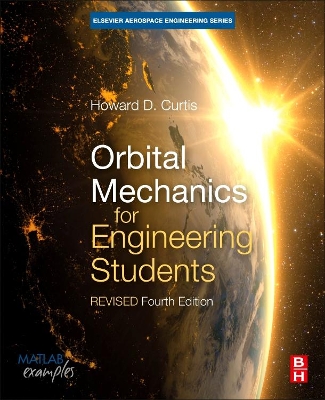Aerospace Engineering
1 total work
Orbital Mechanics for Engineering Students, Second Edition, provides an introduction to the basic concepts of space mechanics. These include vector kinematics in three dimensions; Newton's laws of motion and gravitation; relative motion; the vector-based solution of the classical two-body problem; derivation of Kepler's equations; orbits in three dimensions; preliminary orbit determination; and orbital maneuvers. The book also covers relative motion and the two-impulse rendezvous problem; interplanetary mission design using patched conics; rigid-body dynamics used to characterize the attitude of a space vehicle; satellite attitude dynamics; and the characteristics and design of multi-stage launch vehicles.
Each chapter begins with an outline of key concepts and concludes with problems that are based on the material covered. This text is written for undergraduates who are studying orbital mechanics for the first time and have completed courses in physics, dynamics, and mathematics, including differential equations and applied linear algebra. Graduate students, researchers, and experienced practitioners will also find useful review materials in the book.
Each chapter begins with an outline of key concepts and concludes with problems that are based on the material covered. This text is written for undergraduates who are studying orbital mechanics for the first time and have completed courses in physics, dynamics, and mathematics, including differential equations and applied linear algebra. Graduate students, researchers, and experienced practitioners will also find useful review materials in the book.
